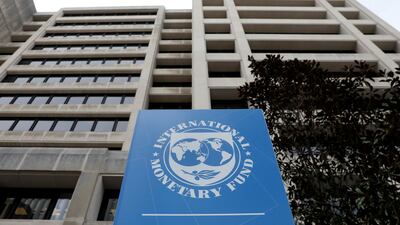The International Monetary Fund said it has outlined plans for essential work until October to help countries mitigate the coronavirus crisis, restore stability, and prepare for strong and sustainable recovery.
The Work Programme will prioritise emergency financial support, analysis of the crisis impact and will formulate the necessary policy responses, the IMF said in a statement on Thursday.
With countries facing mounting debts, the fund will discuss a framework to guide lending in the current environment of inherent uncertainty.
The IMF will also examine options for a temporary increase in access limits to its resources in order to provide additional room for emergency financing, while managing related risks.
"The Covid-19 crisis continues to take a heavy human and economic toll. The outlook remains highly uncertain as many countries are facing the economic fallout of the pandemic," the IMF said. "This has led to an unprecedented surge in demand for Fund support and a strain on staff resources."
In June, the IMF projected that the world economy will contract 4.9 per cent this year, down 1.9 percentage points below its April forecast, before expanding 5.4 per cent next year.
The pandemic, which forced governments to close borders and shut all but essential businesses to stem the spread of the virus, has taken a heavy toll on the global economy.
The IMF projects a cumulative loss to the global economy of over $12 trillion (Dh44tn) over this year and next, as a result of the virus. Although most economies have started opening up, the rate of infection is still on the rise in Americas and Asia, including the US, Brazil and India.
Two thirds of governments globally, including Saudi Arabia, have topped up their fiscal support to offset the effects of the pandemic, pumping about $11tn into their economies, compared with $8tn in April.
In its latest directive, the IMF pledged to continue supporting debt-ridden countries and said it will implement relief from debt servicing under the G20 Debt Service Suspension Initiative (DSSI). Later this year, the IMF and the World Bank will jointly prepare an assessment on a possible extension of the DSSI.
The IMF will also work toward extending the second tranche of the Catastrophe Containment and Relief Trust (CCRT) – a fund which allows the lender to provide grants for debt relief to the poorest countries suffering from natural disasters.
The fund also pledged to help countries restore "macroeconomic stability and foster a strong and inclusive recovery", under the assumption that the pace of direct crisis work will relent somewhat in the months ahead, it said.
The lender will examine financial sector developments and risks then recommend regulatory and supervisory approaches to reinforce stability, it said.
"The crisis offers an opportunity to reshape the global economy and put it on a sound, sustainable, and greener footing," it said. "It will be important to now resume work on long-term global and country economic health, resilience, and preparedness for future shocks."


